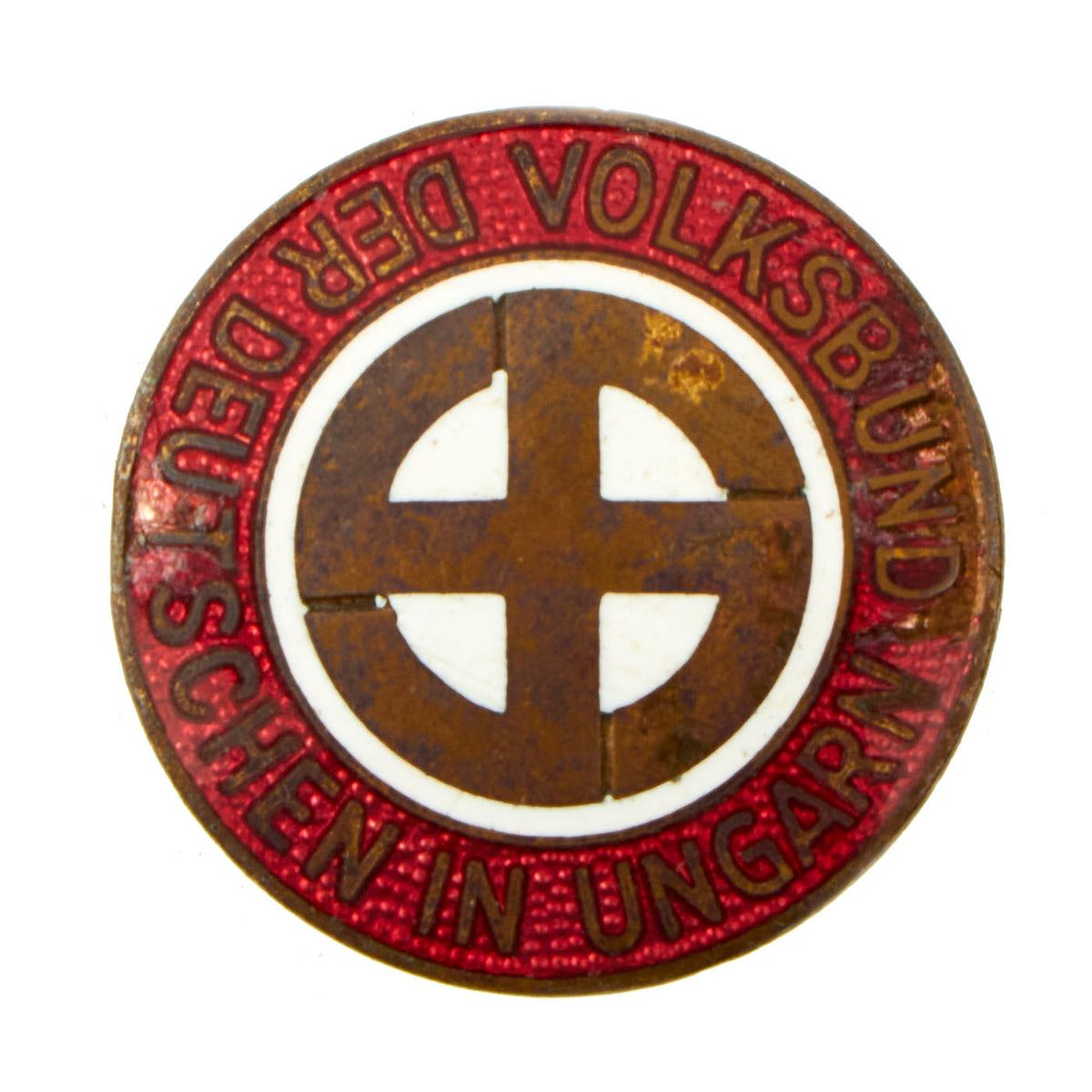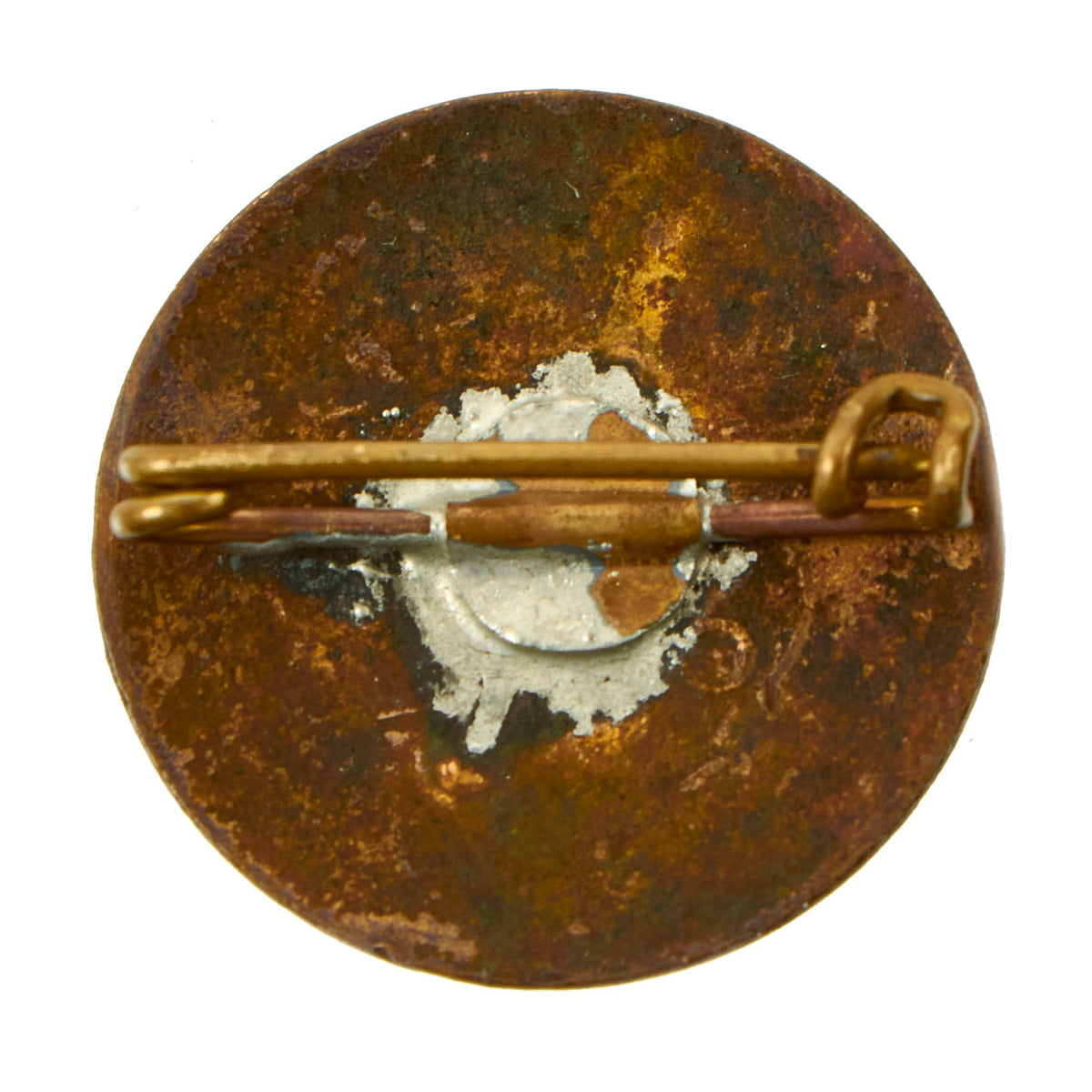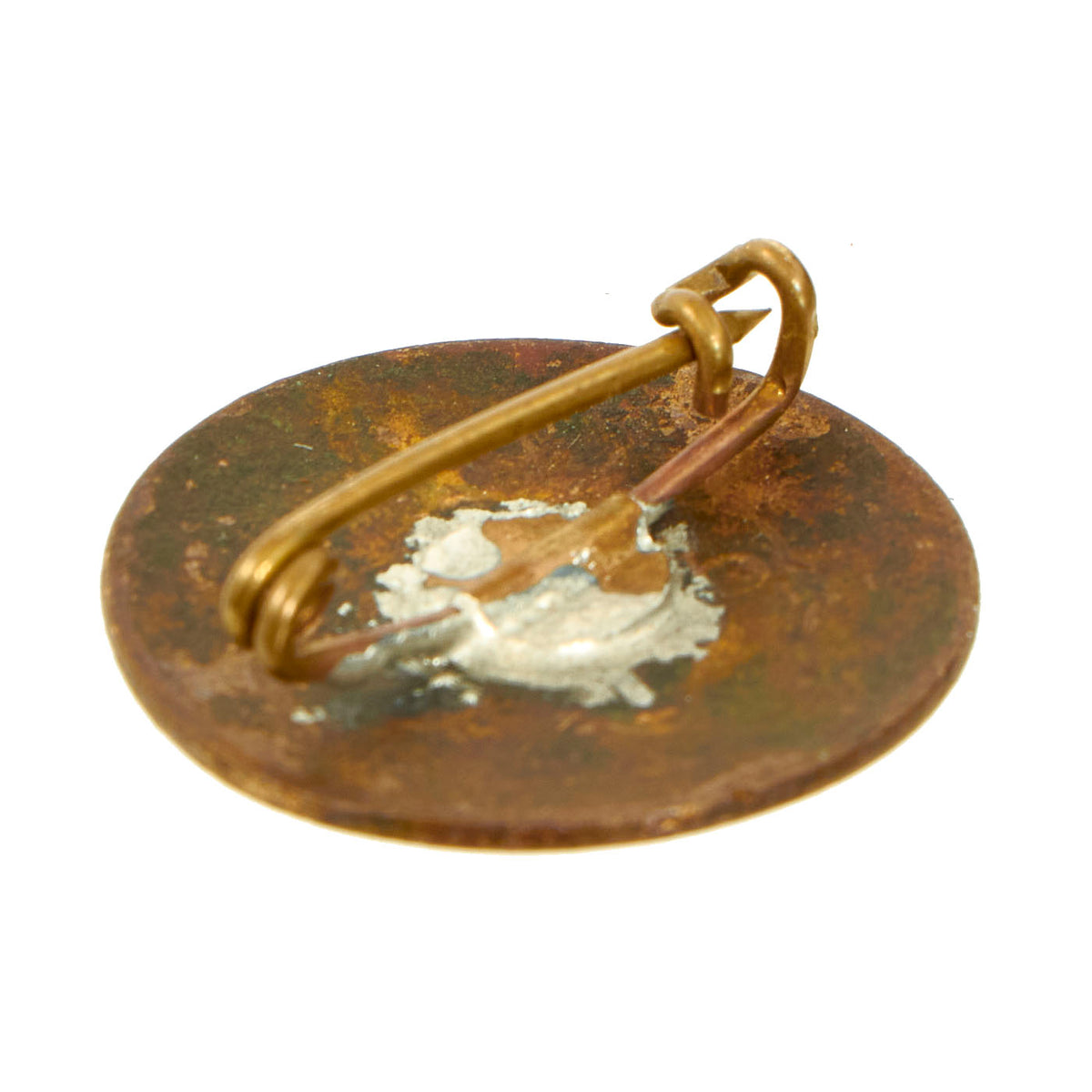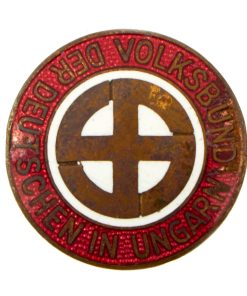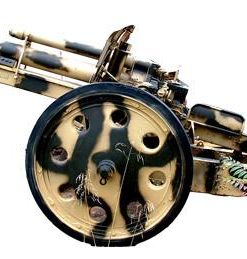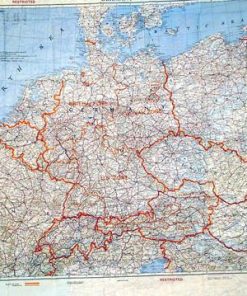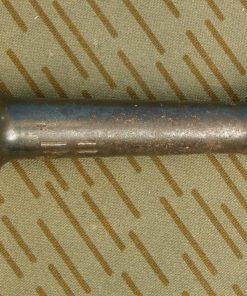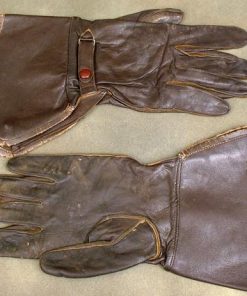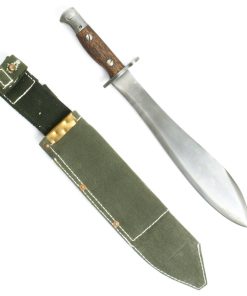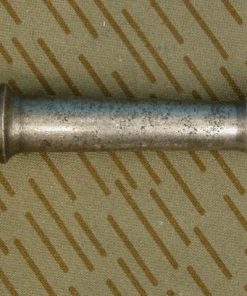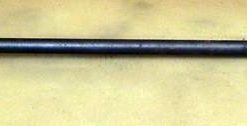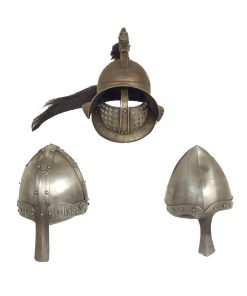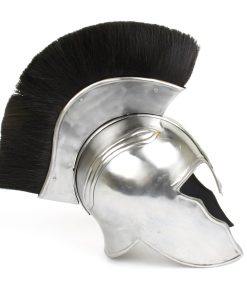Original German WWII Damaged NSDAP Ethnic Germans in Hungary Membership Badge Pin Original Items
$ 250,00 $ 100,00
Original Item: Only One Available. As the NSDAP deepened its grip on power in the late 1930s, it began to target ethnic German populations who were outside the current borders of Germany. Various conflicts over the years had re-drawn borders, and also often in those regions there were many areas of mixed ethnicity. Hungary, previously part of the Austro-Hungarian Empire, was one such area, and had relatively large German population. Past migrations over the centuries had also played their part.
In 1938, the Volksbund der Deutschen in Ungarn (People’s League of Germans in Hungary) was formed, as an arm of the NSDAP in Hungary. They were issued membership badges very similar to the German NSDAP badge, a 24mm diameter, die struck brass alloy badge with multi-colored enamel work. The badge features a translucent red, circular outer border with embossed block letters, VOLKSBUND DER DEUTSCHEN IN UNGARN. This encompasses a white enamel field with canted brass “Sunwheel” style Swas (hook cross).
This example looks to have a seen a lot of use, and has suffered damage to the enamel on the obverse. The white enamel at the end of each “arm” is missing, and there are also chips to the translucent red enamel around the perimeter. The safety pin style attachment on the back looks to have broken off at some point, and then was soldered back on.
A great example with some real period damage and repairs, ready to display!
NSDAP Party
The NSDAP, officially the National Socialist German Workers’ Party ( Nationalsozialistische Deutsche Arbeiterpartei or NSDAP), was a far-right political party in Germany active between 1920 and 1945 that created and supported the ideology of N**ism. Its precursor, the German Workers’ Party (Deutsche Arbeiterpartei; DAP), existed from 1919 to 1920. The Party emerged from the extremist German nationalist, racist and populist Freikorps paramilitary culture, which fought against the communist uprisings in post–World War I Germany. The party was created to draw workers away from communism and into völkisch nationalism. Initially, N**i political strategy focused on anti–big business, anti‑bourgeois, and anti‑capitalist rhetoric. This was later downplayed to gain the support of business leaders, and in the 1930s the party’s main focus shifted to antisemitic and anti‑Marxist themes.
Ad**f Hi**er, the party’s leader since 1921, was appointed Chancellor of Germany by President Paul von Hindenburg on 30 January 1933. Hitl** rapidly established a totalitarian regime known as the Third Reich. Following the defeat of the Third Reich at the end of World War II in Europe, the party was “declared to be illegal” by the Allied powers, who carried out denazification in the years after the war both in Germany and in territories occupied by NSDAP forces. The use of any symbols associated with the party is now outlawed in many European countries, including Germany and Austria.
Fast Shipping with Professional Packaging
Thanks to our longstanding association with UPS FedEx DHL, and other major international carriers, we are able to provide a range of shipping options. Our warehouse staff is expertly trained and will wrap your products according to our exact and precise specifications. Prior to shipping, your goods will be thoroughly examined and securely secured. We ship to thousands clients each day across multiple countries. This shows how we're dedicated to be the largest retailer on the internet. Warehouses and distribution centres can be located throughout Europe as well as the USA.
Note: Orders with more than one item will be assigned a processing date depending on the item.
Before shipping before shipping, we'll conduct a thorough inspection of the items you have ordered. Today, the majority of orders will be delivered within 48 hours. The delivery time will be between 3-7 days.
Returns
The stock is dynamic and we cannot completely manage it because multiple stakeholders are involved, including our factory and warehouse. So the actual stock may alter at any time. It's possible that you may not receive your order once the order has been made.
Our policy is valid for a period of 30 days. If you don't receive the product within 30 days, we are not able to issue a refund or an exchange.
You can only return an item if it is unused and in the same state as the day you received it. You must have the item in its original packaging.
Related products
Uncategorized
Uncategorized
Band of Brothers ORIGINAL GERMAN WWII Le. F.H. 18 10.5cm ARTILLERY PIECE Original Items
Uncategorized
Uncategorized
Uncategorized
Uncategorized
Armored Burgonet Helmet & Polearm from Scottish Castle Leith Hall Circa 1700 Original Items
Uncategorized
Uncategorized
Uncategorized
Uncategorized
Uncategorized
Uncategorized
Uncategorized
Uncategorized
Uncategorized
Uncategorized
Uncategorized
Uncategorized
Uncategorized
